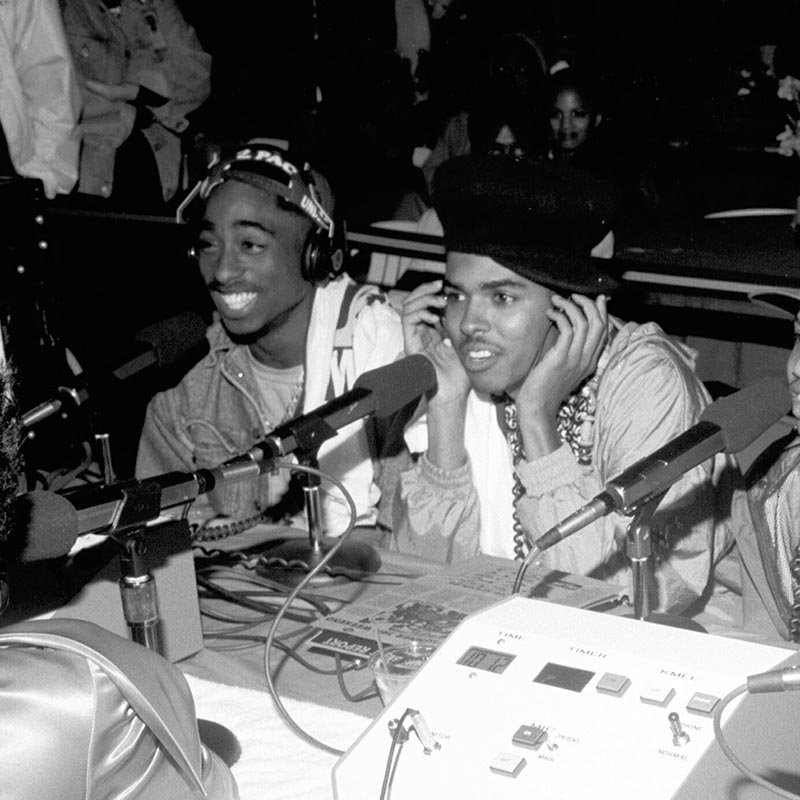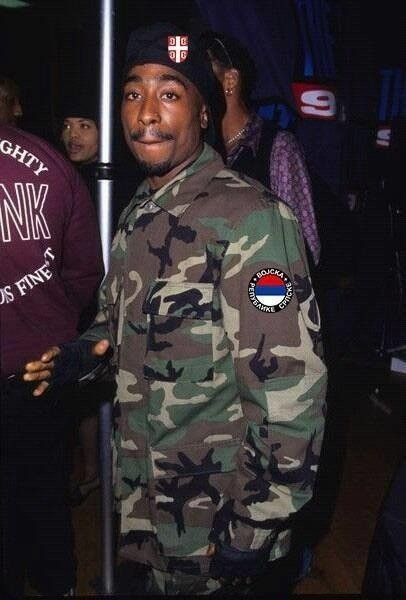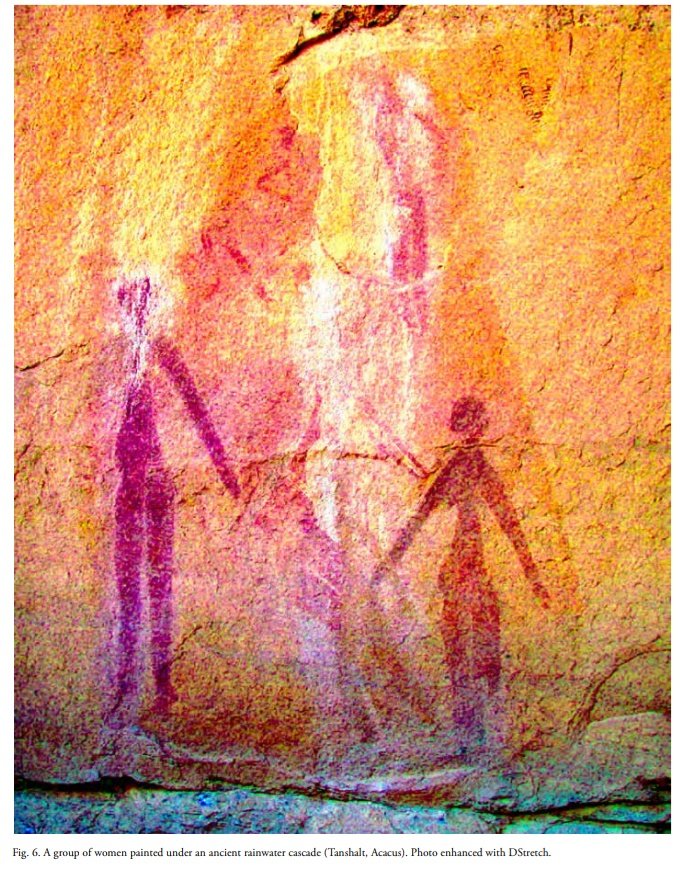Tupac Shakur was raised & mentored his whole life by Black Panthers. In 1989 he himself became the national chairman of the New Afrikan Panthers
"I believe that New Afrikan Panthers are about really reaching out and embracing serious freedom" - Tupac
#BlackHistoryMonth #Day2

"I believe that New Afrikan Panthers are about really reaching out and embracing serious freedom" - Tupac
#BlackHistoryMonth #Day2
https://twitter.com/AfricanWorldH/status/1378035902665134084


In 1991 he started a rap group and a program called "The underground railroad", seeking to create a alternative way out of the streets for young Black men. 

Tupac 1991 :
"The concept behind this is the same concept behind Harriet Tubman, to get my brothers who might be into drug dealing or whatever it is that’s illegal or who are disenfranchised by today’s society-I want to get them back by turning them onto music."

"The concept behind this is the same concept behind Harriet Tubman, to get my brothers who might be into drug dealing or whatever it is that’s illegal or who are disenfranchised by today’s society-I want to get them back by turning them onto music."


"It could be R&B, hip hop or pop, as long as I can get them involved. While I’m doing that, I’m teaching them to find a love for themselves so they can love others and do the same thing we did for them to others" - Tupac speaking on his group the underground railroad, 1991 

Tupac's music often spoke of the police brutality that African Americans face on a regular. In 1991 he was stopped and harassed by the Oakland police, who choked and slammed him to the ground, after being accused of jaywalking. 





"For everyone who doesn't know, I, an innocent young black male, was walking down the streets of Oakland minding my own business and the police department saw fit for me to be trained or snapped back into my place. So they asked for my ID and sweated me about my name" - 2pac 1991 

"We're in the midst of having a $10 million dollar lawsuit against the Oakland Police Department. If I win and get the money, then the Oakland Police department is going to buy a Boys Home, me a house, my family a house, and a 'Stop Police Brutality Center" - 2pac, 1991 

Tupac speaking on the death of La'tasha Harlins in 1991
"You know what my momma used to tell me if ya can't find something to live for......then you BEST, find something to die for. La'tasha Harlins, remember that name...Cause a bottle of juice... it's not something to die for"

"You know what my momma used to tell me if ya can't find something to live for......then you BEST, find something to die for. La'tasha Harlins, remember that name...Cause a bottle of juice... it's not something to die for"


In 1992 with the help of his step father Black Panther & political prisoner Mutulu Shakur, he co-authored The T.H.U.G. L.I.F.E Code, which was signed by Crips & Bloods at the “Truce Picnic” in Watts, California", a code of ethics created for the purposes of organizing and uniting
In '93 while in Atlanta 2pac witness white off duty police officers harassing a Black man, after intervening he was attacked and responded by shooting the police officers. He was later arrested, but the charges were dropped after witnesses revealed that he reacted in self defense 

OG Monster Kody also known as Sanyika Shakur, was a high ranking Crip, who worked to incorporate revolutionary pan African idealogy into the streets.
Tupac spoke with him in 1996, about creating programs for the youth, organizing the streets and forming a new political party.

Tupac spoke with him in 1996, about creating programs for the youth, organizing the streets and forming a new political party.


Tupac renamed himself Makaveli after the Italian Renaissance author Niccolò Machiavelli, referred to as the "the father of modern political philosophy". All members of his group "The Outlawz" took on names of world dictators
"E.D.I. Mean" was named for Ugandan dictator Idi Amin

"E.D.I. Mean" was named for Ugandan dictator Idi Amin


Yaki Kadafi Akiyele Fula, named for Libyan dictator Muammar Gaddafi.
Katari Kastro named for Cuban dictator Fidel Castro.
Hussein Fatal named for Iraqi dictator Saddam Hussein.
Mutah "Napoleon" Wassin Shabazz Beale, named for French emperor Napoleon Bonaparte
Katari Kastro named for Cuban dictator Fidel Castro.
Hussein Fatal named for Iraqi dictator Saddam Hussein.
Mutah "Napoleon" Wassin Shabazz Beale, named for French emperor Napoleon Bonaparte

Mopreme "Komani" Shakur, Tupac's stepbrother, was named for Iranian revolutionary leader Ayatollah Khomeini. 

"Too many families that’s been affected by a wrongful death. This system and this country has tore apart my family, and our families. You can’t have a black family and be together" - Tupac Shakur
"How many more funerals do we gotta go to, and how many more scenes of the crime do we gotta watch them chalk out black figures on the concrete" - Tupac Shakur
"Before we realise that the only way for us to get out of this predicament is to struggle to survive. If we wanna change we gotta fight for it, ain’t nobody gonna give it to us, we just gonna have to take it.” - Tupac Shakur 

• • •
Missing some Tweet in this thread? You can try to
force a refresh






















